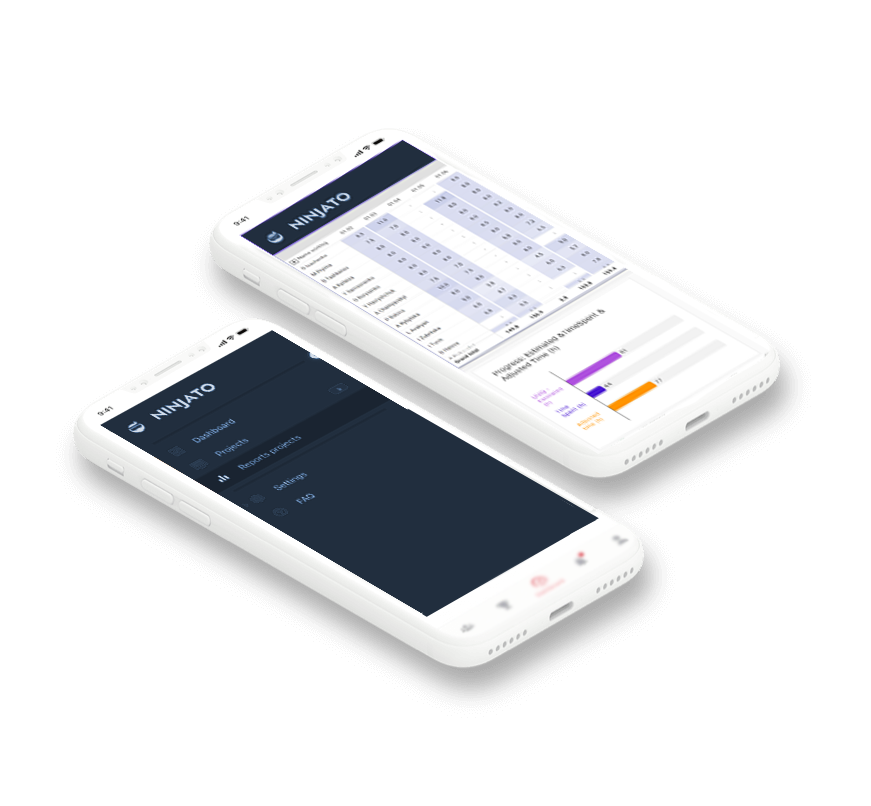Home / Services / Ninjato Data Driven Time Tracking System
Ninjato helps to monitor the progress of software development projects in real time across a range of metrics with detailed analysis
Data driven project management tool
Manage Customer and Stakeholder Expectations with Ninjato
Once, 700 hours of our software development work went unpaid due to mismanagement. Learning from that experience, we discovered a solution. Meet the Ninjato Project Management Tool.
Developers work in their usual project management environment
- Track time spent on tasks.
- Indicate the progress of each task.
Ninjato analyze this data across more than 50 KPI’s
- Generate detailed reports.
- Builds dashboards and graphs.
- Allows you to export data to spreadsheet.
You have a helicopter view on your project
- Forecasts.
- Highlighted risks and potential issues.
- Potential fraud.
- Financial analytics.
- Task’s cost.
FAQ
What are the common pitfalls with Atlassian's Jira project management software?
How can issues with Jira project management software be effectively addressed and resolved?
What are popular Jira project management plugins that enhance system functionality?
Why had Coreteka developed the Jira project management plugin Ninjato?
What are the key features that set the Ninjato Jira project management tool?
How to use the Jira project management plugin Ninjato from Coreteka?
Contact Us


